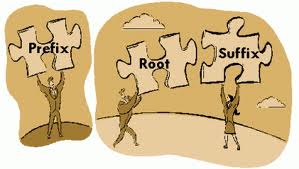Archive for 'English Grammar'
Tag questions in English are easy to make, aren’t they? Posted by Gabriele on May 28, 2013
There are a number of ways to ask questions in English. You can ask a simple yes or no question: Do you like milk? Or you can ask a wh- questions: Where is the milk? Another way to ask questions in English is by using tag questions: You bought milk yesterday, didn’t you? Tag questions…
If I wanted to learn about conditional sentences, I would read this post. Posted by Gabriele on May 16, 2013
Conditional sentences (sentences containing “if”) usually have two parts. One part is the result and the other part is the condition that the result depends on. To figure out which part of the sentence is which you just need to locate the word “if.” The condition of the sentence usually comes right after the word…
Formal and Informal Phone Calls Posted by sasha on Mar 27, 2013
People spend a lot of time talking on the phone. Phone calls will be different depending on the situation. For example, a group of friends will use different language on the phone than business associates. Watch two phone conversations to learn how to use both formal and informal English on the phone. Here are the scripts…
Emphatic expression you really need to know! Posted by Gabriele on Mar 21, 2013
An emphatic expression is one that is said with emphasis and stress to indicate importance. This type of expression is used to show you have strong feelings about what you are saying. Often emphatic expressions that are written have an exclamation point (!) at the end of the sentence. While spoken emphatic phrases have stress…
English suffixes you need to know Posted by Gabriele on Mar 7, 2013
There are many, many different types of suffixes in English. Suffixes are letters added to the end of a word to give the word new meaning. Some of the most common suffixes in English are related to conjugating verbs, for example –ed is added to a word to show it is in the past tense…
English prefixes you need to know Posted by Gabriele on Mar 5, 2013
Words in English (and other languages too) can often be broken down into different parts, including prefixes and suffixes. Knowing the meaning of common prefixes and suffixes in English is very helpful when trying to figure out the meaning of a new and unfamiliar word. If you know the meaning of a prefix or suffix…
Who and whom: How are they the same and how are they different? Posted by Gabriele on Feb 12, 2013
‘Who’ and ‘whom’ are both question words that are used when asking about a person (not a place or a thing). These words are also both pronouns, which can refer to a person being discussed, without referring to that person by name. In these ways, the two words are alike and used similarly. However, ‘who’…






